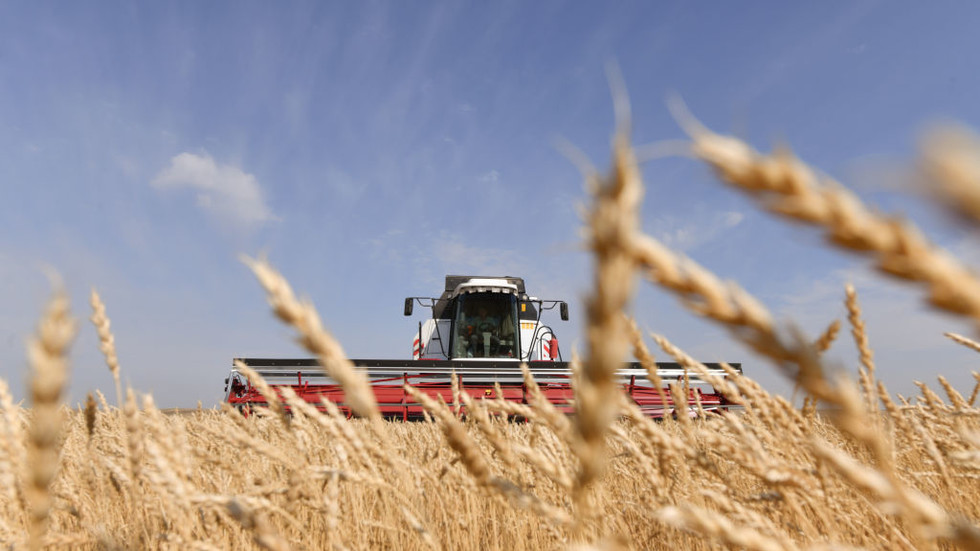RT đưa tin, Nga đã bắt đầu gửi những lô ngũ cốc miễn phí đầu tiên tới các quốc gia châu Phi đang gặp khó khăn theo thỏa thuận được Tổng thống Nga Vladimir Putin công bố hồi đầu năm nay. Tuần vừa rồi, Somalia trở thành nước đầu tiên nhận được 25.000 tấn ngũ cốc.
Lời hứa ngũ cốc của Nga
Chuyến hàng này là một phần trong thỏa thuận được Tổng thống Nga công bố trong hội nghị thượng đỉnh Nga - châu Phi ở St Petersburg hồi tháng 7. Tại hội nghị, ông Putin hứa sẽ cung cấp hỗ trợ lương thực miễn phí cho một số quốc gia châu Phi sau khi thỏa thuận ngũ cốc ở Biển Đen do Liên Hợp Quốc làm trung gian không thành công.
Trong cam kết của mình, nhà lãnh đạo Nga tuyên bố rằng Burkina Faso, Zimbabwe, Mali, Somalia, Cộng hòa Trung Phi và Eritrea mỗi nước sẽ nhận tới 50.000 tấn ngũ cốc từ Nga và sẽ hoàn toàn miễn phí.
Bộ trưởng Nông nghiệp Nga Dmitry Patrushev cho biết Mátxcơva dự kiến sẽ cung cấp tổng cộng 200.000 tấn ngũ cốc miễn phí cho châu Phi vào cuối năm nay.
Phân bón miễn phí
Nga cũng đã cung cấp các chuyến hàng phân bón miễn phí cho một số nước khác. Tháng trước, Bộ Ngoại giao Nga tuyên bố rằng Mátxcơva cùng với Chương trình Lương thực Thế giới của Liên Hợp Quốc đã gửi 20.000 tấn phân bón tới Malawi, 34.000 tấn tới Kenya và đang chờ đợi để phê duyệt thêm 23.000 tấn cho Zimbabwe, 34.000 tấn cho Nigeria và 55.000 tấn cho Sri Lanka.
Động thái của Nga gửi viện trợ lương thực miễn phí tới châu Phi được đưa ra sau khi nước này đơn phương rút khỏi cái gọi là Sáng kiến ngũ cốc Biển Đen vào đầu năm nay.
Thỏa thuận này ban đầu được Liên Hợp Quốc và Thổ Nhĩ Kỳ làm trung gian vào tháng 7.2022, nhằm tạo điều kiện thuận lợi cho việc xuất khẩu ngũ cốc của Ukraina - như các sản phẩm lúa mì, ngô và hướng dương - sang thị trường thế giới, chủ yếu đến các nước nghèo hơn, chẳng hạn như các nước ở châu Phi.
Để đổi lấy việc cho phép vận chuyển ngũ cốc của Ukraina, Nga được hứa rằng các lệnh trừng phạt của phương Tây sẽ được dỡ bỏ đối với hoạt động xuất khẩu nông sản của Mátxcơva.
Tuy nhiên, một năm sau, Nga rút khỏi thỏa thuận với lý do nước này vẫn không thể đưa bất kỳ loại ngũ cốc hoặc phân bón nào ra thị trường thế giới và phương Tây đã hoàn toàn phớt lờ việc kết thúc thỏa thuận.
Ngoài ra, Mátxcơva lưu ý, hơn 70% lô hàng theo sáng kiến này đã không đến được các nước nghèo mà thay vào đó được chuyển đến các quốc gia giàu có.

Nga cáo buộc phương Tây tích trữ nông sản
Bên cạnh việc ngăn chặn xuất khẩu nông sản của Nga, Nga còn cáo buộc các nước phương Tây đang tích trữ phân bón của Nga bị mắc kẹt tại các cảng của EU.
Theo tuyên bố của Bộ Ngoại giao Nga vào tháng 10, hơn 96.000 tấn phân bón viện trợ nhân đạo miễn phí cho các quốc gia châu Phi nghèo đang bị giữ lại tại các cảng ở Latvia, Estonia, Bỉ và Hà Lan.
Mátxcơva lưu ý, mặc dù nói rằng không có biện pháp trừng phạt nào áp dụng đối với xuất khẩu nông sản của Nga, nhưng Brussels đã ngăn chặn “ngay cả việc giao hàng miễn phí, thuần túy nhân đạo” hàng hóa của Nga.
Sự hồi sinh của Sáng kiến Biển Đen
Trong khi đó, Liên Hợp Quốc đã cố gắng khôi phục thỏa thuận ngũ cốc với Ukraina nhưng cho đến nay vẫn không có kết quả. Đại sứ Nga tại Thổ Nhĩ Kỳ Aleksey Erkhov giải thích, những nỗ lực khởi động lại sáng kiến này “không có kết quả” vì phương Tây tiếp tục áp đặt các lệnh trừng phạt đối với thực phẩm và phân bón của Nga.








